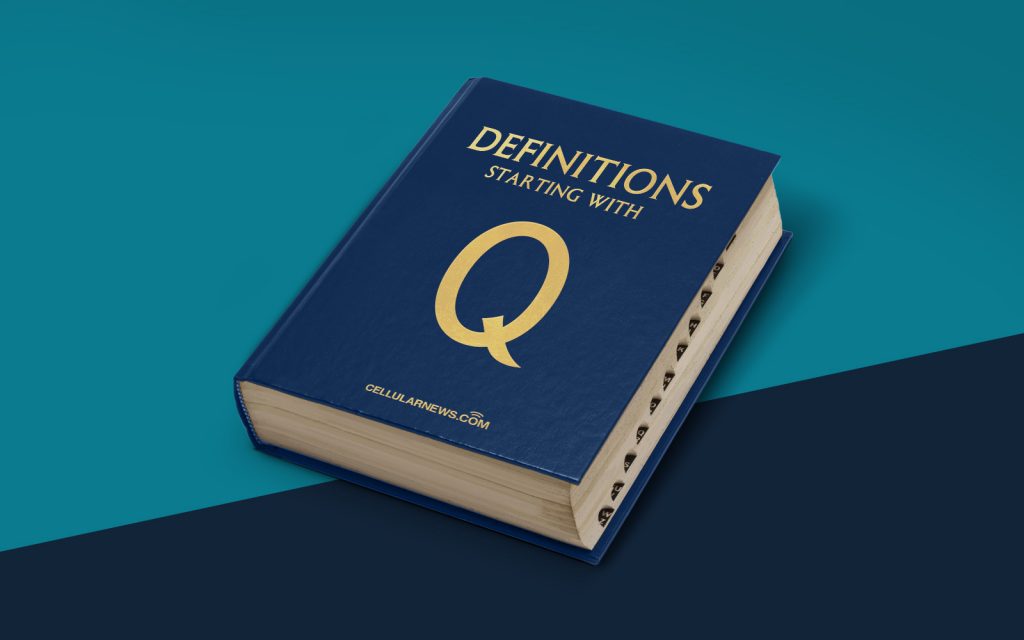
What is Qi? A Deep Dive into the Definitive Concept of Qi
Welcome to the “DEFINITIONS” category on our page, where we explore and unravel the mysteries behind various concepts. In this article, we embark on a journey to demystify the ancient concept of Qi. From its origins to its modern-day understanding, we will delve deep into the essence of Qi and its significance in our lives. So, grab a cup of tea and get ready to step into the world of Qi!
Key Takeaways:
- Qi is an ancient Chinese philosophical concept that describes the vital energy or life force flowing through all living things.
- Understanding and harnessing Qi can lead to improved physical, mental, and emotional well-being.
The Essence of Qi
Qi, pronounced as “chee,” is a fundamental concept in traditional Chinese culture. Its roots can be traced back thousands of years to ancient Chinese philosophy and traditional Chinese medicine. Qi embodies the idea that everything in the universe, including human beings, is interconnected and influenced by vital energy or life force.
In Chinese philosophy, Qi is believed to flow through meridians or channels in our bodies, maintaining balance and harmony. This vital energy is said to influence our physical, mental, and emotional well-being.
Understanding the Significance of Qi
Qi is not just a philosophical concept; it is also applicable in various aspects of our lives. Here are some key takeaways:
- Health and Wellness: Traditional Chinese medicine emphasizes the importance of maintaining a balanced flow of Qi for optimal health. By harmonizing the Qi within our bodies, we can enhance overall well-being.
- Martial Arts and Qigong: Many traditional Chinese martial arts and Qigong practices focus on cultivating and directing Qi. These practices aim to improve physical strength, enhance mental focus, and promote internal harmony.
In essence, understanding and actively working with Qi can help us achieve a better understanding of ourselves and our environment.
Modern Interpretations of Qi
In recent years, the concept of Qi has gained interest and recognition beyond traditional Chinese culture. Many individuals and practitioners have integrated Qi-based practices into their daily lives for its potential benefits.
Some modern interpretations of Qi include:
- Qi Healing: Various alternative therapies, such as acupuncture and Reiki, are based on the belief that manipulating Qi can restore health and promote well-being.
- Mindfulness and Meditation: Qi-based practices often overlap with mindfulness and meditation techniques. Focusing on breath and energy flow can help align the mind and body, promoting a sense of calm and balance.
While these modern interpretations may differ from the traditional Chinese understanding of Qi, they demonstrate a universal recognition of the significance of energy and its impact on our well-being.
Unlocking the Power of Qi
Now that we have explored the depths of Qi, you may be wondering how to unlock its power in your own life. Here are a few simple steps to get you started:
- Practice Mindful Breathing: Take a few minutes each day to focus on your breath, paying attention to its flow in and out of your body. Visualize the energy of Qi flowing through you.
- Explore Qi-based Practices: Discover traditional Chinese practices like Tai Chi or Qigong, or try alternative therapies like acupuncture or Reiki to experience the potential benefits of Qi.
- Nurture Your Well-being: Maintain a healthy lifestyle by eating nutritious food, exercising regularly, and finding time for relaxation and self-care. All these elements contribute to a harmonious flow of Qi.
Remember, unlocking the power of Qi is a personal journey that requires patience and practice. As you cultivate a deeper understanding of this ancient concept, you may find yourself tapping into an abundant source of vitality and well-being.
So, next time someone asks you, “What is Qi?”, you can confidently share your newfound knowledge and enlighten them about the incredible potential it holds.
